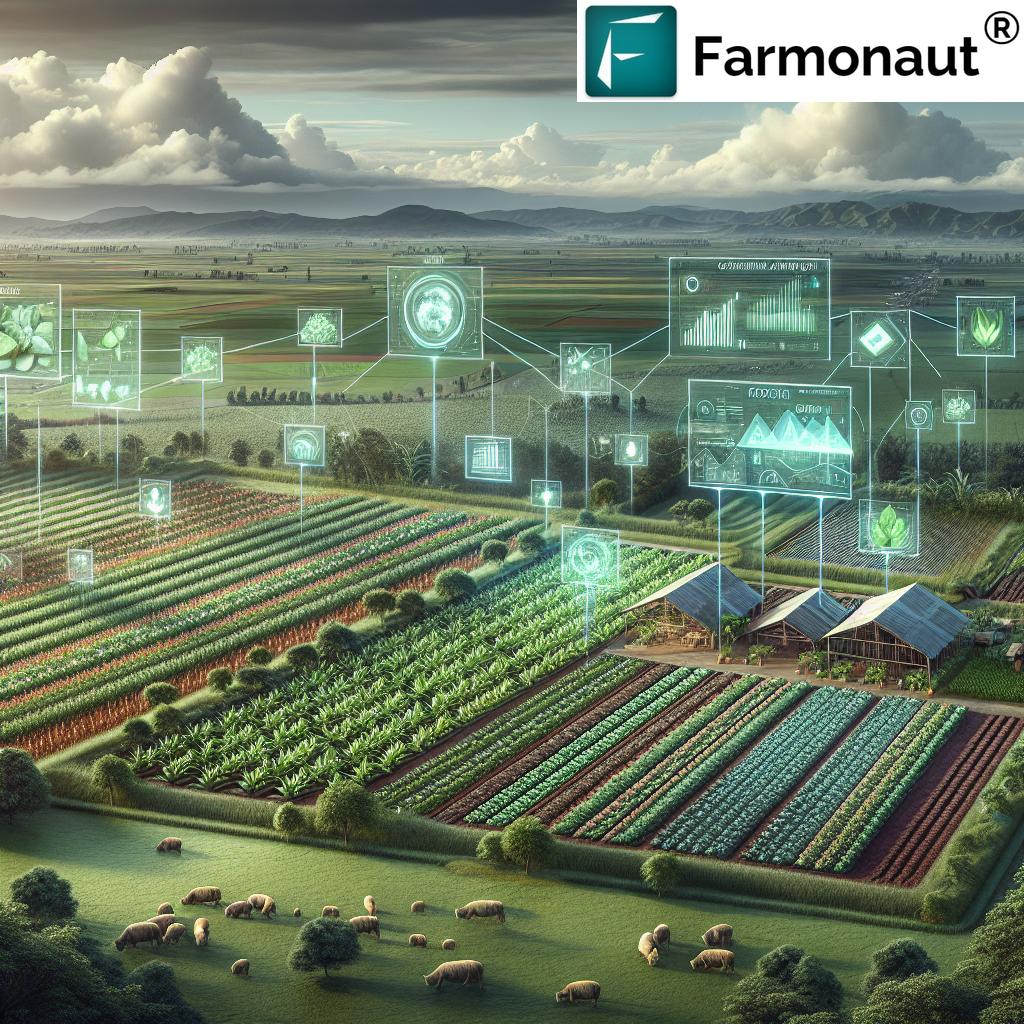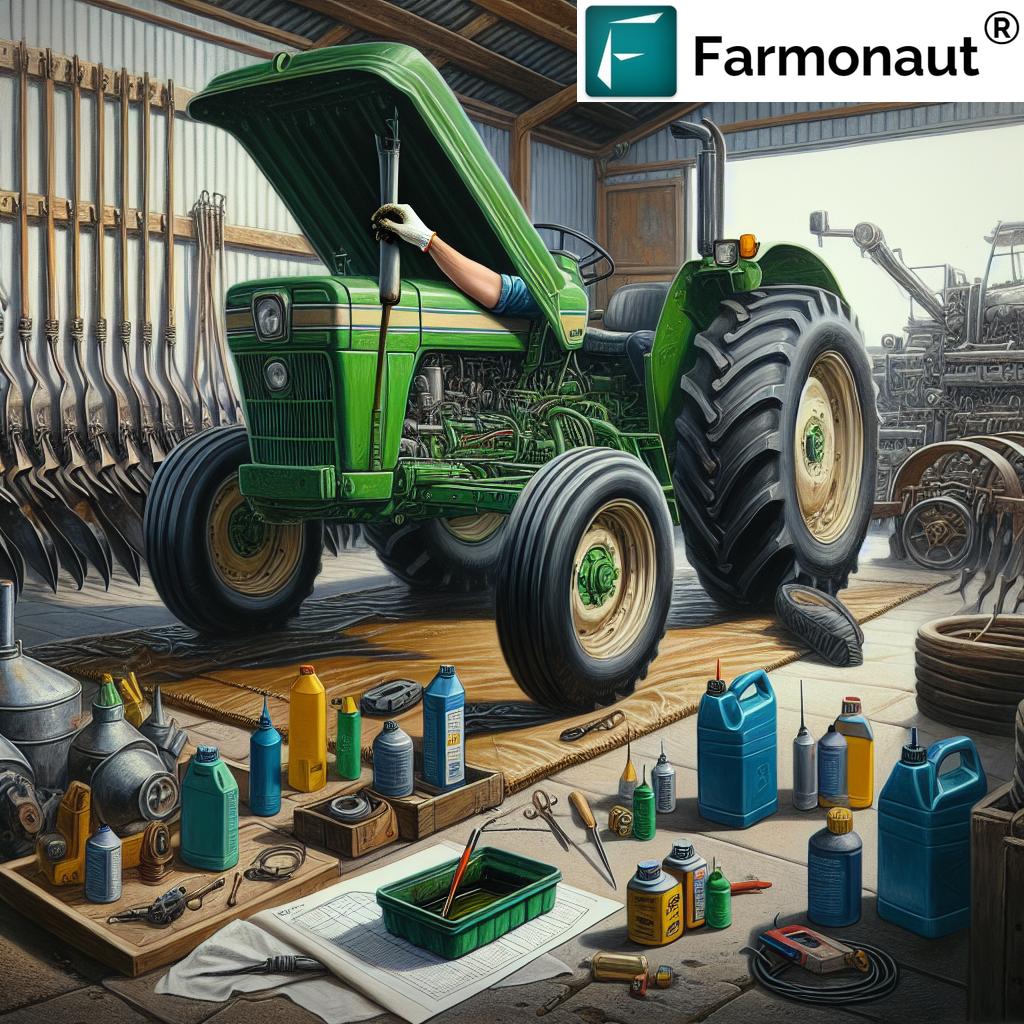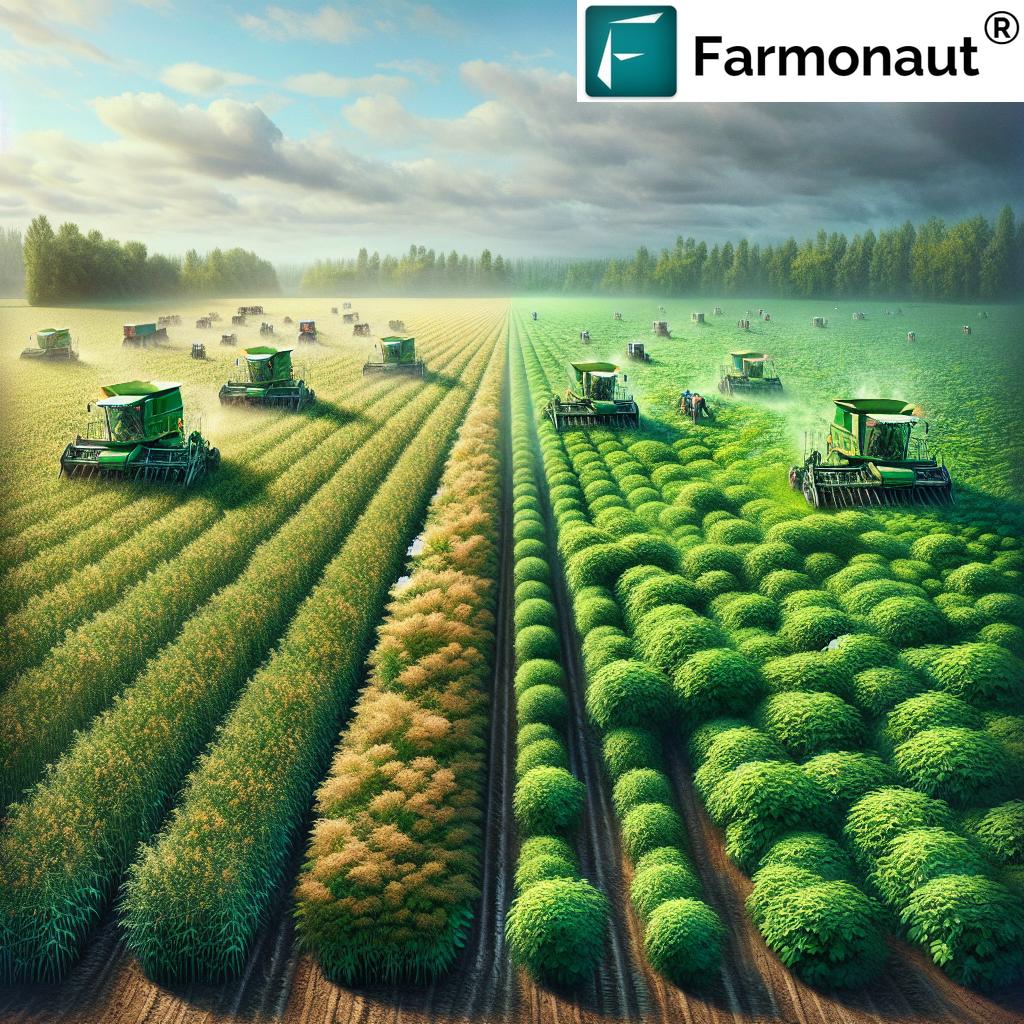Agriculture Industry Trends: 2025’s Game-Changing Secrets!
Introduction
As we advance into May 2025, the agriculture industry stands at a crucial intersection: balancing food security, environmental stewardship, and economic viability. Massive technological advancements in agriculture, a surge in sustainable farming practices, and a focus on innovative systems like vertical farming are reshaping how we produce and consume food around the globe. Our collective action in supporting new approaches, embracing data-driven decision-making, and adapting to climate challenges is leading us toward a smarter, greener, and more transparent agricultural sector.
In this comprehensive analysis, we’ll unveil the most significant trends that are shaping not only farming and forestry but also the broader agri-food value chain. From satellite-powered farm management solutions to blockchain in food supply chain transparency, we’ll examine the core technologies, best practices, and strategies that are revolutionizing food systems for a sustainable future.
Technological Advancements in Agriculture: The Digital Agricultural Revolution
The agriculture industry is experiencing a rapid digital transformation. Technologies such as artificial intelligence (AI), machine learning, and big data analytics are now integral to farm management and productivity. These tools enable us to make smarter, data-driven decisions, optimize resources, and respond effectively to changing environmental and market conditions.
Precision Agriculture Technology
The rise of precision agriculture technology is perhaps the most significant development of this era. Precision agriculture leverages AI and satellite data to monitor soil health, manage irrigation, predict pest infestations, and optimize crop yields. By doing so, farmers can reduce input costs, improve resource efficiency, and minimize waste.
- AI-powered Decision Support: AI models analyze climate, soil, and market data, providing real-time recommendations for planting, fertilization, and harvesting.
- Machine Learning for Predictive Analytics: Predicts disease outbreaks, pest emergence, or water shortages so that farms can prepare and respond proactively.
- Big Data for Operational Optimization: Data collected from multiple sources (drones, satellites, IoT sensors) enables holistic resource optimization and smart farm management.
Farmonaut: Making Precision Agriculture Accessible for All
At Farmonaut, our mission is to democratize access to these advanced tools. With real-time satellite monitoring of crop health, integrated with AI-driven advisory systems like Jeevn, we help farmers of all scales make better decisions, leading to higher productivity and profitability. Our solutions optimize irrigation, pest control, and fertilization—reducing input wastage and environmental impact.
Discover more about farm-scale, real-time crop monitoring: Farmonaut Crop Health Application.
Drones and Robotics: Automation at the Farmgate
The integration of drones and robotics into modern agriculture is revolutionizing both small and large-scale operations:
- Drone Imaging: Equipped with multispectral and thermal cameras, drones provide critical data on crop health, soil quality, and early pest infestations.
- Robotic Automation: Robotics automate labor-intensive tasks, including planting, weeding, and harvesting, reducing labor costs and improving operational efficiency.
By automating processes and providing actionable insights, these technologies are integral to increasing yields and reducing the resource burden of food production.
AI-Based Advisory Systems
Services like Farmonaut’s Jeevn AI platform bring personalized, AI-based recommendations to every farmer. By analyzing real-time weather and satellite data, Jeevn delivers crop management strategies tailored to local environments and crop types. This level of customized advice improves efficiency and helps mitigate risks from extreme weather events and pest infestations.
Farmonaut for Large-Scale and Agro-Enterprise Operations
Farmonaut also supports large-scale farm management with scalable solutions, ensuring agribusinesses can optimize every hectare, manage fleets, and implement the latest analytics for maximum returns.
Sustainable and Climate-Smart Practices: Regenerating Agriculture Systems
There is a global shift toward regenerative, sustainable farming practices that protect soil health, support biodiversity, and minimize environmental impact. Today, these innovative methods are at the forefront of agricultural transformation.
- Regenerative Agriculture: Prioritizes practices like cover cropping, crop rotation, and reduced-till, which build soil organic matter and reduce erosion.
- Organic Farming: Avoids synthetic pesticides and fertilizers, with a focus on natural methods for pest control and soil enrichment.
- Reduced-Till and No-Till Farming: Minimizes disturbance to soil, retaining carbon and moisture, and improving soil structure for long-term productivity.
By embracing these sustainable farming practices, we can increase productivity while reducing our ecological footprint—a win-win for both farmers and consumers.
Climate-Smart Agriculture
With worsening climate change and more frequent extreme weather events, adaptation is key. Climate-smart agriculture focuses on strategies such as:
- Developing and cultivating drought-resistant crops
- Optimizing water use through micro-irrigation and advanced soil moisture sensing
- Adopting early warning systems against floods and droughts
- Participating in carbon footprint monitoring to comply with emerging regulations
According to recent reports, the European Union is planning to introduce subsidies to incentivize better water management and waste reduction—illustrating a policy-driven push toward more climate-resilient systems.
Farmonaut helps agribusinesses and governments with
carbon footprinting solutions, enabling real-time tracking of greenhouse gas emissions and supporting compliance with new environmental policies.
Reducing Food Waste in Agriculture
One of the untapped levers for sustainability is waste minimization. With up to 30% of global food production lost before reaching consumers, enhancing transparency in the supply chain and optimizing logistics is imperative. Farmonaut’s real-time satellite and blockchain technology play critical roles in reducing food waste in agriculture by providing predictive analytics for harvesting, storage, and transportation.
Controlled Environment Agriculture & Vertical Farming: Future-Proofing Food Security
Rapid urbanization and arable land constraints are driving innovation in controlled environment agriculture (CEA) and vertical farming. These methods break the link between food production and traditional farmland, enabling crops to be grown in urban spaces and non-arable regions.
Vertical Farming: Maximizing Yield with Minimal Resources
Vertical farming stacks crops in controlled indoor environments, using hydroponics, aeroponics, and LED lighting. Key benefits include:
- Up to 95% less water use than field agriculture
- No synthetic pesticides required due to enclosed control
- Year-round, reliable production and consistent crop quality
- Brings food production closer to urban consumers (farm-to-table journey shortened)
This shift bolsters food security for growing cities, reduces transportation emissions, and increases traceability for fresh produce.
Farmonaut’s Advanced Monitoring for Urban & Vertical Farming
Farmonaut’s satellite-based crop management platform is tailored for urban growers and vertical farms, delivering precision control over irrigation, nutrient cycles, and pest management—even in the most demanding cityscapes.
Controlled Environment Agriculture (CEA): The Technology Stack
Modern CEA utilizes tightly regulated greenhouses and indoor farms with climate-control, CO2 enhancement, and real-time analytics for maximizing yields per square foot. Automation and data gathering systems are core to this approach, and Farmonaut’s integrated solutions help growers track every parameter to maintain optimal conditions.
Want to integrate satellite/weather data in CEA apps? Explore the Farmonaut API or our API Developer Docs.
Agri-Fintech Integration: Financial Inclusion for Farmers
The intersection of agriculture and fintech is unlocking new avenues for productivity and risk management. Agri-fintech solutions bring digital banking, microcredit, and crop insurance directly to smallholder and commercial farmers.
How Agri-Fintech Empowers Farmers
- Mobile-Based Loan Access: Farmers can digitally apply for and receive microloans, accelerating investment cycles for crop production.
- Insurance Based on Real-Time Data: Satellite and sensor data help insurers fairly assess risk, reduce fraud, and process claims rapidly, making coverage more affordable.
- Market Access and Price Intelligence: Real-time pricing and market opportunities help producers sell at optimal rates.
Farmonaut partners with financial institutions to enable satellite-based verification for crop loans and insurance, promoting better financial access for farmers and supporting resilient agricultural economies.
Blockchain for Transparency and Traceability in Food Supply Chains
Blockchain technology is rapidly being integrated into the food supply chain to deliver trust, transparency, and full traceability from the farm to the consumer’s table. As global regulations grow stricter and consumer demand for authenticity rises, blockchain provides an immutable, transparent digital record of every stage in the product journey.
Benefits of Blockchain in Food Supply Chain
- Improved Supply Chain Transparency: Enables retailers and consumers to verify the authenticity and source of products.
- Faster Compliance: Helps farmers and exporters meet regulatory requirements efficiently.
- Fraud Reduction: Difficult for bad actors to manipulate digital records, reducing the likelihood of counterfeit or mislabelled goods.
Learn more about Farmonaut’s blockchain-based traceability solutions for food, textile, and agri-businesses: Product Traceability Platform.
Sustainable Supply Chains: Reducing Food Waste, Enhancing Freshness
The food supply chain is evolving—becoming smarter, shorter, and more transparent through the use of AI-driven logistics, advanced cold storage, and traceability tools. At least a third of post-harvest losses occur in storage, processing, or transport. Tackling this challenge with predictive analytics, blockchain, and real-time satellite monitoring can reduce food waste in agriculture dramatically and ensure fresh products reach consumers rapidly.
- Blockchain-enabled Supply Chain: Mitigates fraud, shortens farm-to-table journey, and enhances trust in both domestic and export markets.
- AI-Driven Logistics: Optimizes fleet routes and delivery schedules for maximum efficiency and lowest carbon emissions.
- Cold Chain Innovations: Advanced storage solutions protect sensitive crops, reducing spoilage and improving food security.
Farmonaut offers advanced fleet and resource management tools to support agri-enterprises in managing logistics, reducing operational costs, and minimizing waste.
Increased Demand for Organic and Non-GMO Products: Health-Conscious Consumers Lead the Way
In response to evolving consumer preferences, there is a global increase in demand for organic agricultural products and natural, non-GMO food choices. Driven by concerns over health, wellness, and sustainability, this trend influences farmers to shift towards chemical-free, environmentally friendly cultivation.
- Certified organic farming fetches premium prices in both domestic and export markets.
- Governments worldwide, including the European Union, are introducing stricter regulations on pesticide use and promoting natural methods.
- Data-driven certification: Platforms like Farmonaut’s traceability system help verify organic claims by tracking the entire farm-to-fork journey.
By shifting to regenerative and organic practices, farmers and agribusinesses tap into growing markets while protecting their soil and local environment.
Climate Change and Extreme Weather Events: Navigating the New Normal
Every year, extreme weather events such as droughts, floods, and storms cost the European Union’s agriculture sector billions of euros—about 6% of total production. Droughts alone account for over half of these losses. Without urgent, robust climate action, annual crop losses in the EU could increase by 66% by 2050.
-
Real-Time Climate Monitoring with Farmonaut:
Farmonaut’s advanced crop health and meteorological analytics empower farmers and policymakers to track changes, assess risks in near real-time, and plan mitigation or adaptation actions accordingly. - Carbon Footprint Tracking: Farmonaut’s tools support climate compliance and guide farms toward more sustainable practices.
Understanding these risks and using data-driven agriculture is key to building climate-resilient agri-food systems in the face of accelerating change.
Trade Policies and Global Markets: Steering Through Uncertainties
In addition to technical and environmental challenges, the global agricultural sector is significantly influenced by evolving trade policies. For example, U.S.-China trade tensions have had a far-reaching impact on American farmers, especially those relying on soy exports.
- Trade disputes can affect market access and profitability, underscoring the need for diversified strategies and robust data-driven export compliance tools.
- Tools like blockchain can help ensure compliance with market regulations, food safety standards, and documentation, enabling smoother cross-border trading.
As policies shift, adaptability and real-time intelligence powered by digital agriculture platforms are more critical than ever for global industry players.
Comparison Table: Emerging Agricultural Trends for 2025
| Trend | Estimated Market Growth (%) (2023–2028 CAGR) |
Key Technologies Involved | Environmental Impact (Estimated CO2 Reduction %) |
|---|---|---|---|
| Precision Agriculture Technology | 14% | Satellite Imaging, Artificial Intelligence, Machine Learning, IoT, Sensors | 15–25% (from optimized inputs, reduced waste) |
| Vertical Farming | 20% | Hydroponics, LED Lighting, Automation, CEA, Data Analytics | Up to 90% (via water use efficiency, reduced transport) |
| Regenerative & Sustainable Farming Practices | 12% | Organic Inputs, Cover Cropping, Soil Monitoring, Biocontrols | 35–45% (from carbon sequestration, reduced chemicals) |
| Climate-Smart Agriculture | 13% | Drought-Resistant Crops, Smart Irrigation, Weather Analytics | 20–30% (via resilience, resource optimization) |
| Blockchain in Food Supply Chain | 32% | Blockchain, Mobile Apps, Cloud Platforms, APIs | 10–20% (from reduced fraud, efficiency gains) |
| Agri-Fintech Solutions | 17% | Fintech Apps, Satellite Verification, Mobile Lending | 12–18% (from improved decision-making, less wastage) |
| Organic Agricultural Products | 11% | Traceability Tech, Certification Platforms | 30–40% (from chemical reductions, ecosystem benefits) |
Farmonaut’s Role in Shaping the Future of Agriculture
At Farmonaut, we are committed to making precision agriculture technology, sustainability tools, and advanced analytics accessible for every farmer, agri-business, and policymaker worldwide. Our state-of-the-art platform harnesses:
- Satellite imagery for real-time monitoring and decision support
- AI-driven advisories for site and crop-specific strategies
- Blockchain-based traceability for transparency, authenticity, and compliance
- Fleet and resource management for agri-enterprise optimization
- Carbon footprinting tools for a sustainable agricultural future
Farmonaut is accessible anywhere—on Android, iOS, Web, and API—so stakeholders in the agriculture industry can manage their operations, improve yields, and meet sustainability targets with confidence.
Our offerings are designed for individual farmers, agribusinesses, governments, NGOs, and financial institutions—from the fields of India and the European Union to Latin America, Africa, and beyond. With scalable, intuitive solutions, we empower agriculture communities across diverse geographies to thrive amidst evolving trends and industry transformations.
Ready to experience next-gen crop, plantation, and forest management, with seamless urban and rural integration? Try Farmonaut now!
FAQ: Agriculture Industry Trends 2025

Conclusion: Embracing Innovation for a Greener, Smarter Future
The agriculture industry in 2025 is defined by rapid digital transformations, creative sustainability initiatives, and evolving market demands. Our future depends on embracing technological advancements in agriculture, fostering resilience amid climate volatility, and building transparency into every link of the supply chain.
At Farmonaut, we remain dedicated to supporting farmers, agri-enterprises, and stakeholders worldwide on this revolutionary journey. By combining satellite-based insights, AI-powered tools, and secure blockchain traceability, we are actively shaping a smarter, more sustainable, and inclusive food system that benefits everyone—from producers to consumers.
Join us in revolutionizing food and agriculture—explore Farmonaut and experience the future of farming today.












